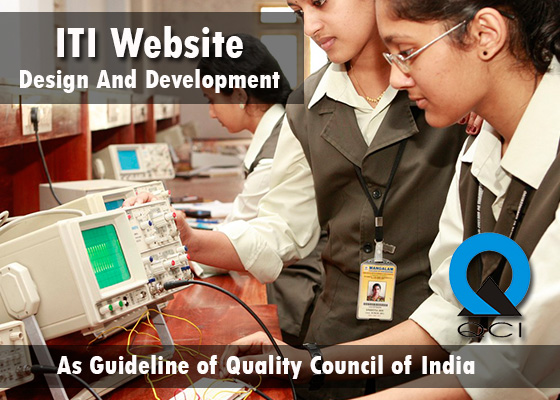MGPE-009: Gandhi in the 21st Century By Dr. Shubhangi Vaidya
Mahatma Gandhi has been hailed as the Man of the Twenty-first century. His life and times neatly spreads over three centuries. Born in the latter half of the I9th century, when colonialism spurred by fierce industrialism and consumerism were the dominant ideologies. He develops in the 20th century a comprehensive socio-economic and political theory which embraces every aspect of the life of an individual and society to challenge the prevailing norm. By using his 'self' as a laboratory where he experiments with Truth as a pure scientist, finds solutions for the major problems now confronting humanity in the 21" century. By presenting himself as an example before the world, he showed how his concepts were not only of a Utopia, but also of how to achieve it. Indeed, as we look back on the 20th Century. We can justly claim that one or the most dominant figures of that century was Mahatma Gandhi. What Gandhi himself would have said of the 20th century and of the prospects of the 21" is debatable, for in reality he was in no way "representative" of the times in which he lived, and was in so many ways profoundly out of tune with his contemporaries and their values. It is widely held that of all the revolutionaries who dominated the 20th century, Gandhi alone offered hope for reform both within and without, physical and spiritual without destruction. Unfortunately, unprecedented advances in science and technology have not improved the devastating social and economic conditions of the world's poor. In this course we learn Gandhi’s thoughts, vistas and visions to solve the problems and human challenges of 21st Century. Gandhi's vision covers individual and social transformation, replaces violence by non-violence and stands for harmony between man and nature. His thought transverse the span between the micro, the individual and the world community, men and women, across religious, linguistic and racial barriers, the spiritual and material, health and hygiene, polities and ethics, ecology and economics, right and duties, defence and development. His wide ranging philosophy hardly left anything untouched. He saw life as a whole and saw it steadily. This course will engage Gandhian approach to resolve the contentious issues of 21st Century as well.
Course layout
|
WEEK |
TOPIC |
|
Week-1 |
Unit-1 Understanding Globalisation and its Ramifications-I (Economic and Technology) |
|
Week-2 |
Unit-2 Understanding Globalisation and its Ramifications-II (Social, Political and Cultural) |
|
Week-3 |
Unit-3 Livelihood / Culture / LifeStyle and Environment |
|
Week-4 |
Unit-4 Gandhi’s Vision of a Global Order |
|
Week-5 |
Unit-5 Gandhian Idea of Man |
|
Week-6 |
Unit-6 Debates on Nature of State |
|
Week-7 |
Unit-7 Problems and Practices of Democracy Unit-8 Gramswaraj Today |
|
Week-8 |
Unit-9 Sarva Dharma Samabhava |
|
Week-9 |
Unit-10 Cultural Diversities Unit-11 Social Inclusion |
|
Week-10 |
Unit-12 Empowering Women |
|
Week-11 |
Unit-13 Science and Technology Unit-14 Media |
|
Week-12 |
Unit-15 Terrorism Unit-16 Human Rights |
Instructor bio

Dr. Shubhangi Vaidya
Indira Gandhi National Open University (IGNOU), New Delhi
Dr. Shubhangi Vaidya, Associate Professor, is a Sociologist by training, and an alumna of the Centre for the Study of Social Systems, School of Social Sciences, Jawaharlal Nehru University, Delhi. She has nearly two decades of experience in Open and Distance Learning, and has worked in both, the Regional Services Division as well as the School of Interdisciplinary and Trans-disciplinary Studies, IGNOU. She has contributed to programme development in Sociology, Anthropology and Women’s and Gender Studies. She is currently engaged in developing interdisciplinary programmes and guiding research in the School of Interdisciplinary and Trans-disciplinary Studies. Her areas of interest include disability studies, gender studies, labour and development and diaspora studies. She has published book chapters and research papers in the interdisciplinary areas of disability and gender, particularly autism, and is the author of two books, Autism and the Family in Urban India: Looking Back, Looking Forward (Springer, 2016) and Embodying Motherhood: Perspectives from Contemporary India (Sage-Yoda Press, 2016), co-authored with Anu Aneja. Her recent publication is titled ‘(Dis)ability, Gender and Identity: Crossing Boundaries’ in the volume Women’s and Gender Studies in India: Crossings edited by Anu Aneja ( Routledge, 2019).
Summary
| Course Status : | Upcoming |
| Course Type : | Elective |
| Duration : | 12 weeks |
| Start Date : | 01 Sep 2021 |
| End Date : | |
| Exam Date : | |
| Category : |
|
| Credit Points : | 4 |
| Level : | Postgraduate |

